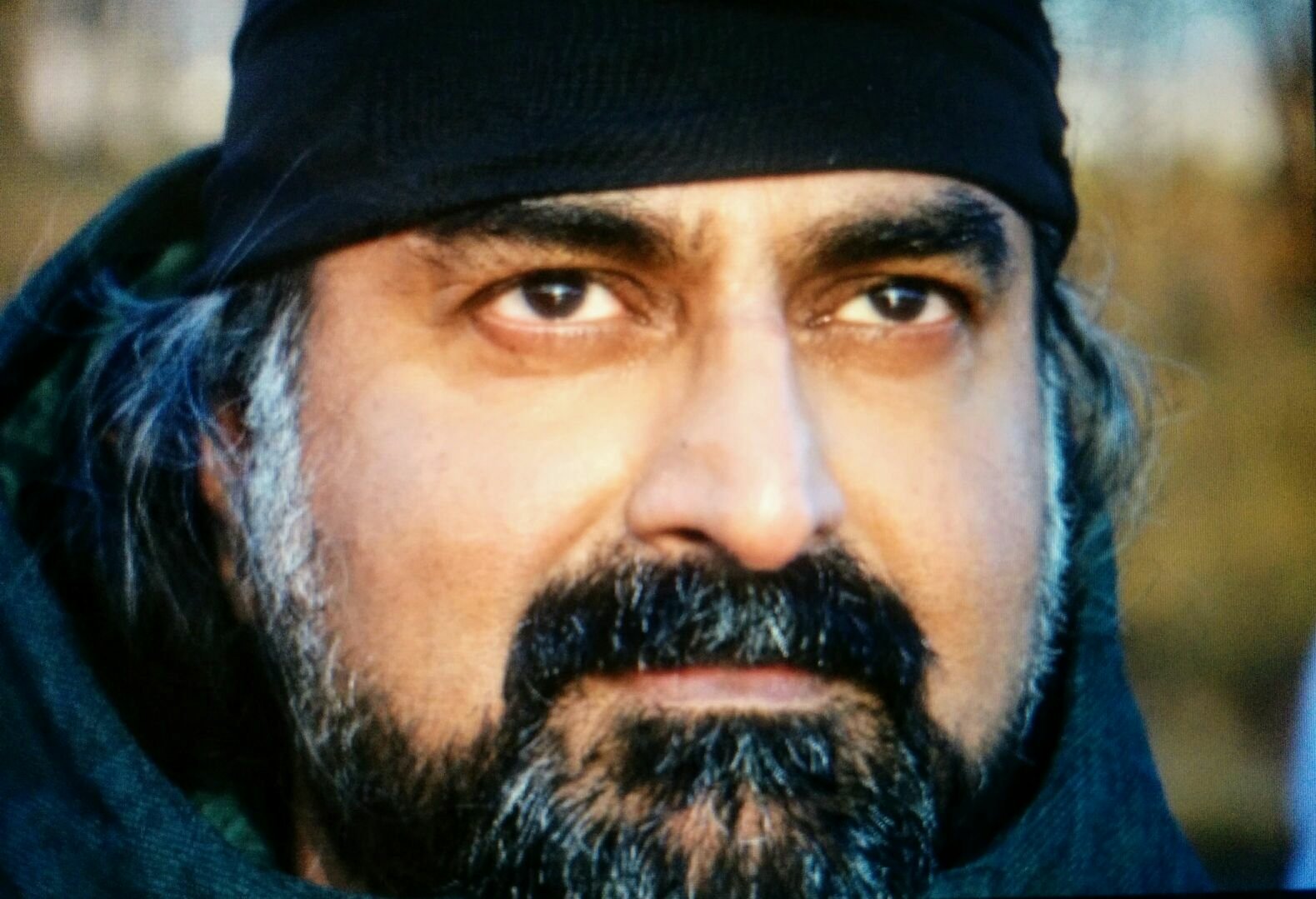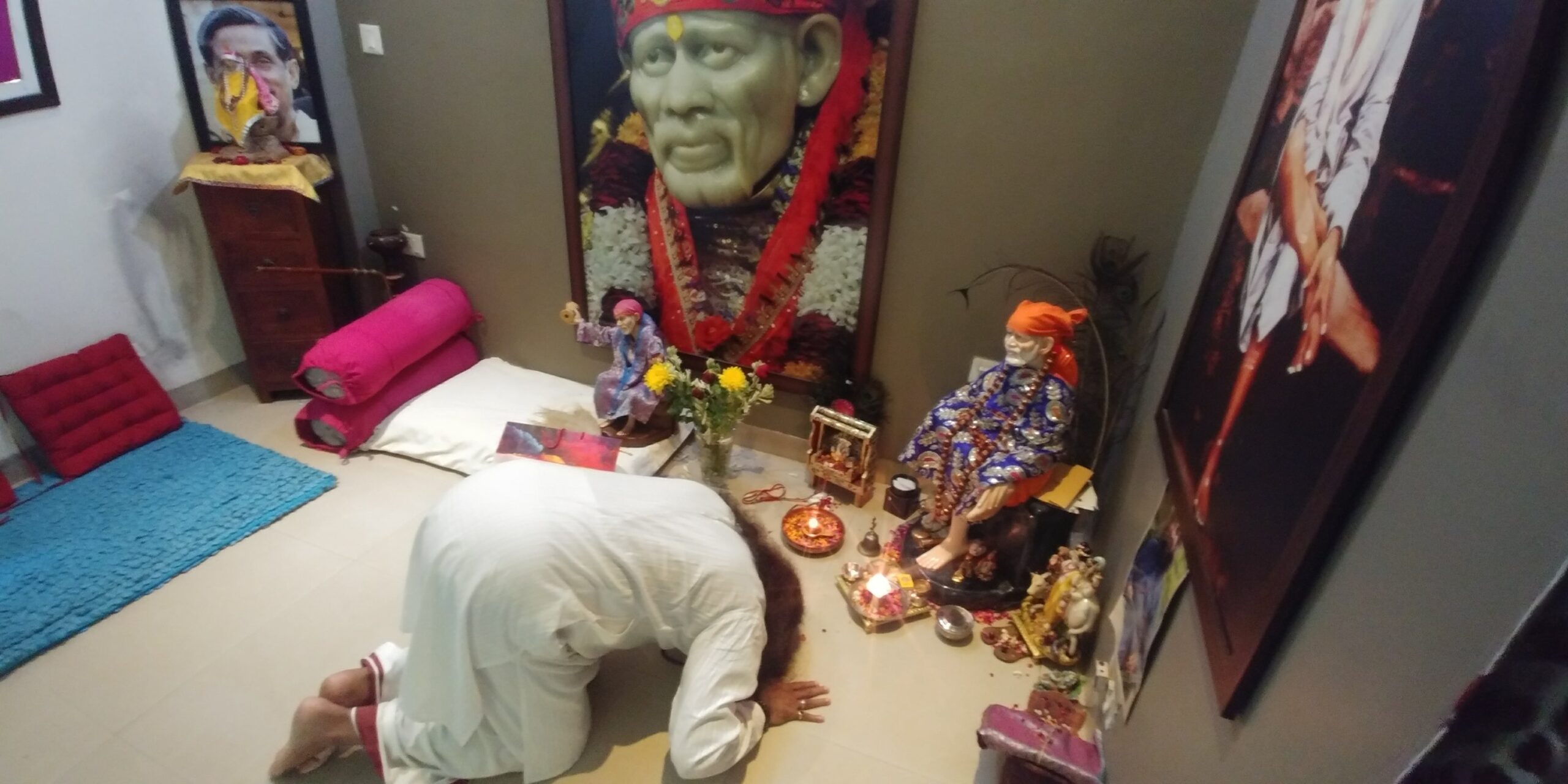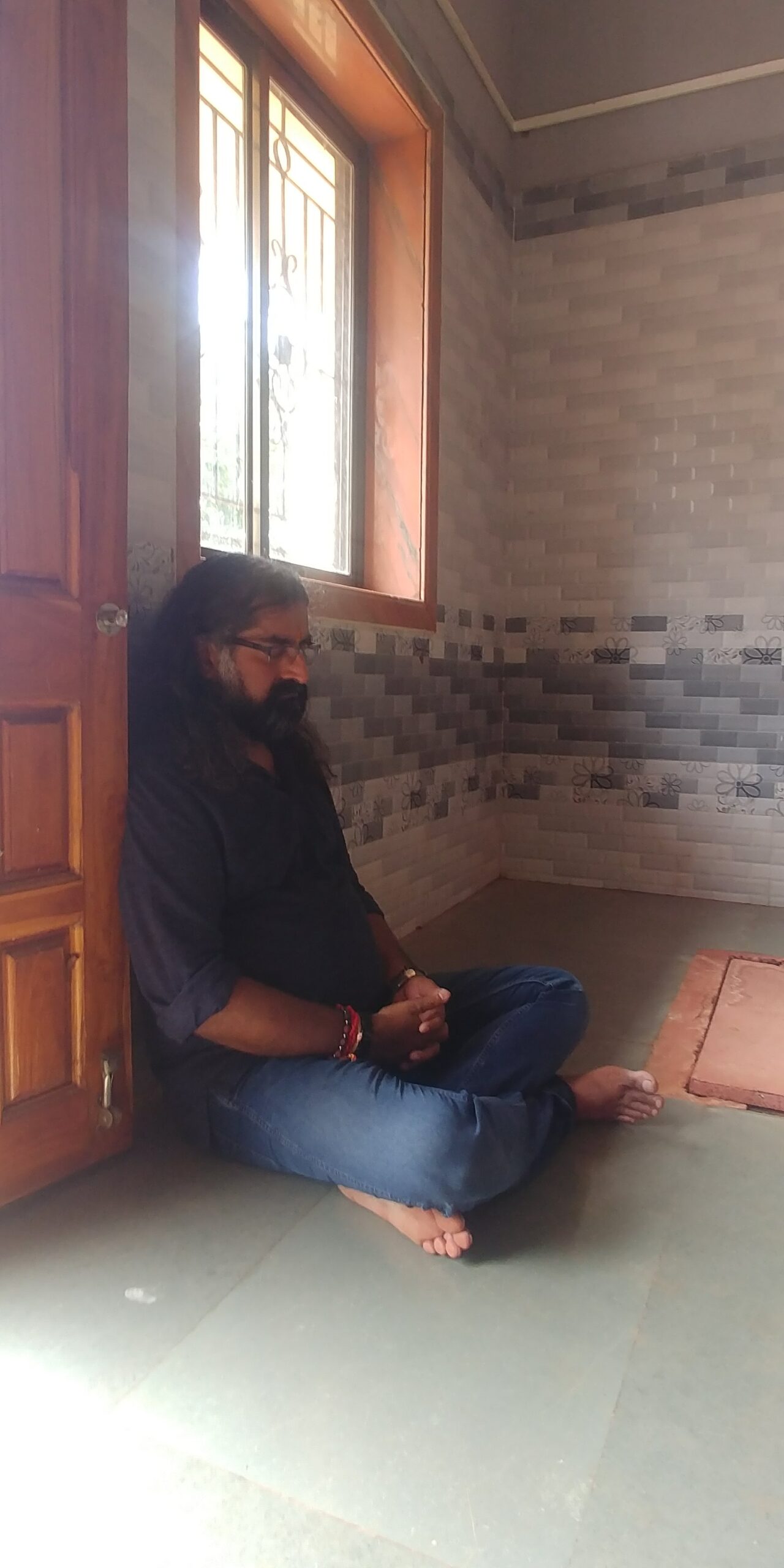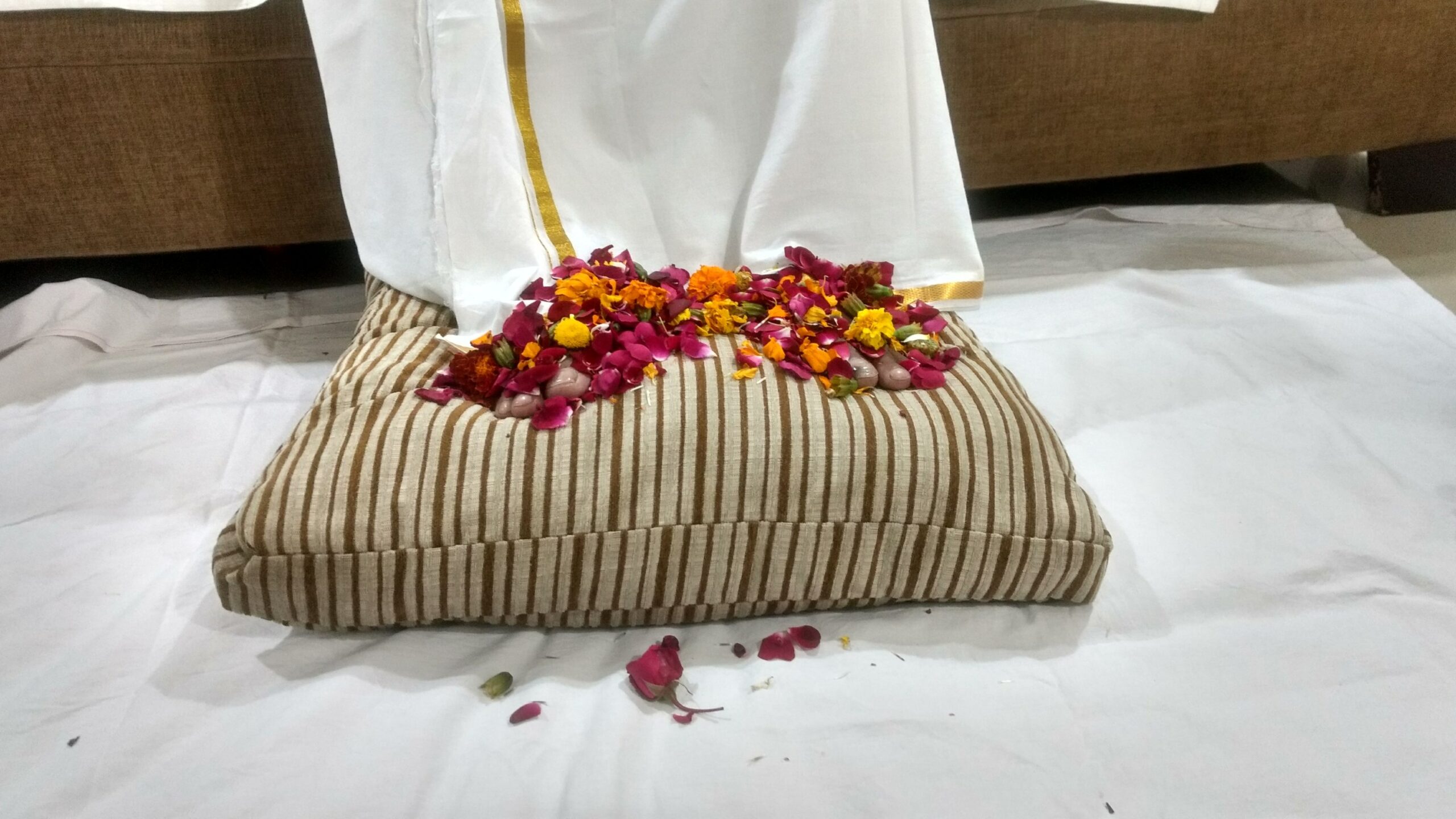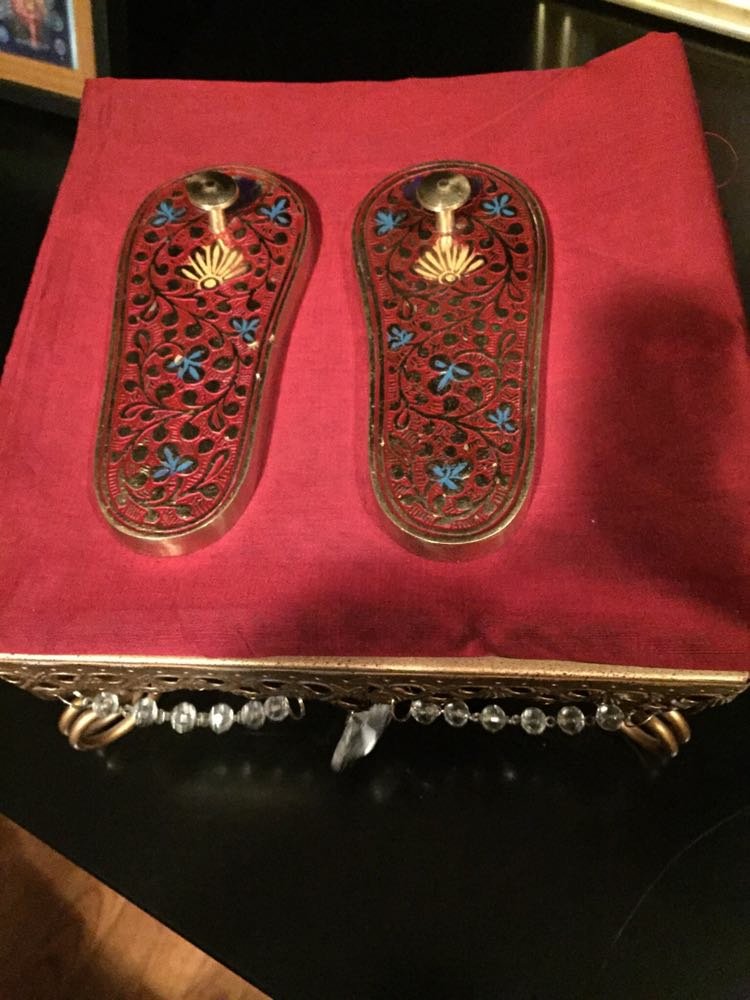“I cannot believe that I am so limited! I cannot feel I have a body. Bhagawan, (Lord) What is this?”, Manu asked Atmananda. Atmananda paid no attention to his words. There are many such exclamations from his followers that he is used to; and he knows the cause of such surprises – Mind. He was never impressed with anything that minds ever produced. Why should he? Mind is all that he saw around him. Walking, talking, sleeping and dreaming minds. Heavy minds laden with concepts, prejudices, fears, memories and desires. Nothing else.
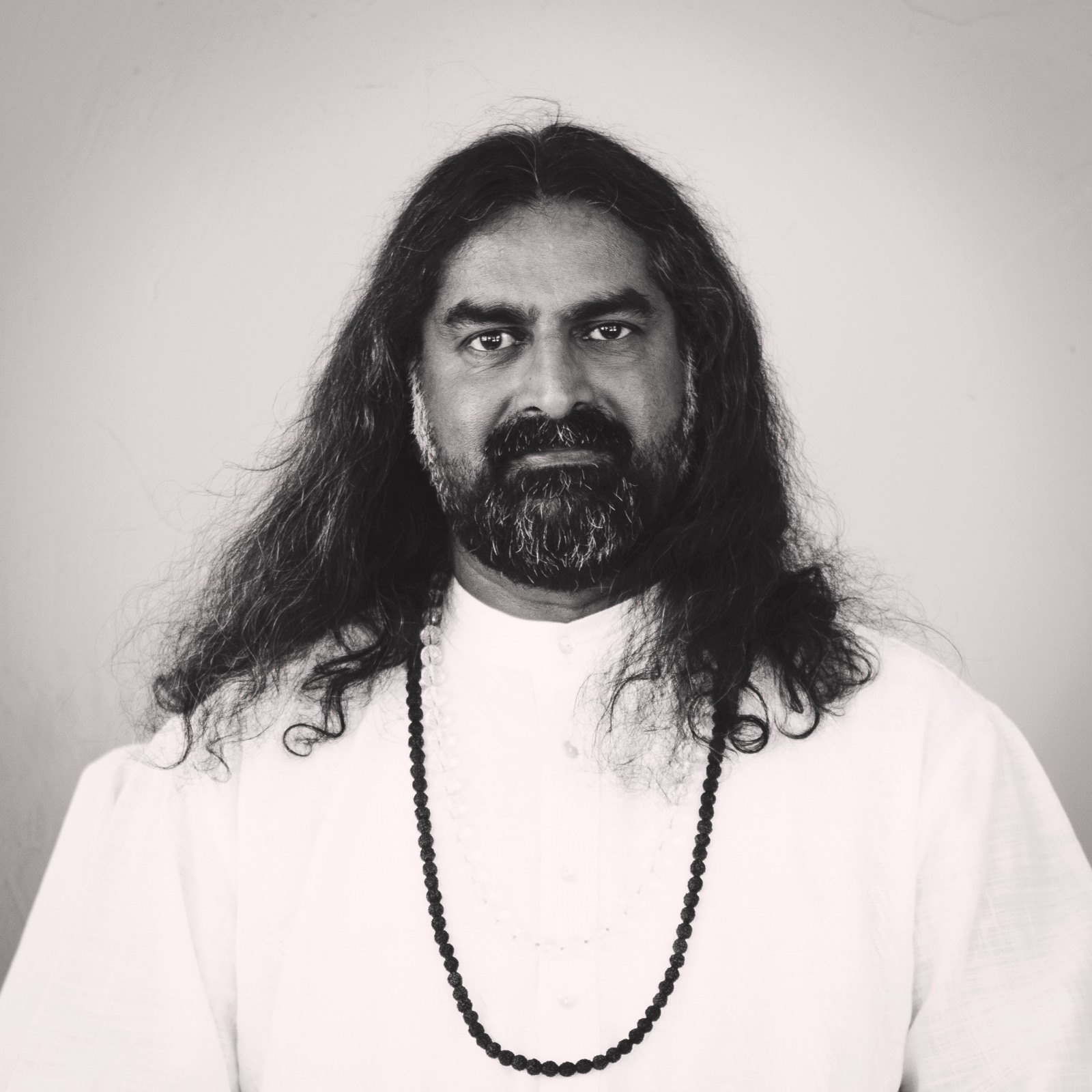
Manu had experienced a trance state by simply connecting his mind to the heart centre of the ever meditating Atmananda. Manu sat a few feet away and just concentrated on the heart centre of Atmananda. At that moment, a melting, dissolving feeling enveloped his mind as his heart centre merged with that of Atmananda. He has been doing that ever since he started following Atmananda. Finally, on that day, he saw, or rather felt, in his inner eye the fathomless, unlimited vast sky of Atmananda’s heart centre. The whole universe seemed to be resting there. That glimpse pushed him into a blissful trance state and he stayed like that for a few hours.
Atmananda never guided him into this state nor did he pay any attention to it. He knew that one can only feed minds. Consciousness needs no food. His very presence was his highest teaching. To the eligible ones, he delivered the unasked just by his presence. Eligibility was in inner emptiness, unshakeable faith, lack of doubts, surrender and clear purpose of liberation. On the tree of liberation, healthy leaves seeking the ultimate remained on the tree, while the leaves that are dry, confused, prejudiced and decayed with heavy emotions, kept falling off periodically. Every breeze, let alone storm, was a reason enough for those leaves to fall off. Whenever this happened, and someone commented or asked about it, Atmananda would reply calmly, “They are not ready for liberation. It is not their time yet.”
Sun had set. Atmananda stood up and started walking. He moved a few steps towards the path that led to the river bank. Obviously, his intention was to take a dip and meditate at the nearby temple. The local temple priest always gave him and his followers some food whenever this wandering monk came that way, even though they never asked or expected anything from anybody, anytime.
On the way, they met an old woman. She was limping and walking with the help of a stick. She was rheumatic and seemed to have a frozen leg. Atmananda would always ask “Have you eaten?” to every old and sick person he met on his way. He asked the same question to this lady. She said “No. It has been 2 days.” This place was away from the city and sparsely populated. Hence, it was not a favorite place for wandering monks and helpless old people. Atmananda turned to one of his followers called Ramakrishna and said “I gave you three fruits in the afternoon to keep. Do you still have them?” This was given to Atmananda by a fruit vendor as Dakshina. Ramakrishna said “Yes Gurudeva.” Atmananda said “Give it to her.”
Ramakrishna hesitated for a moment because that was the only food that this group had at that time. Atmananda repeated without any emotions, “Give it to her.” Ramakrishna did not think again. By that time, Atmananda had already started walking ahead. Ramakrishna rushed to hand over the fruits to the old woman and then catch pace with the usually fast and agile Atmananda. In fact, all of them were quite hungry and there was no assured food source at hand. Yet, while walking with Atmananda who never ever stayed at one place for more than three days, nothing was assured. This was a test for most disciples. Atmananda never cared who dropped off and who stayed. He continued wandering.
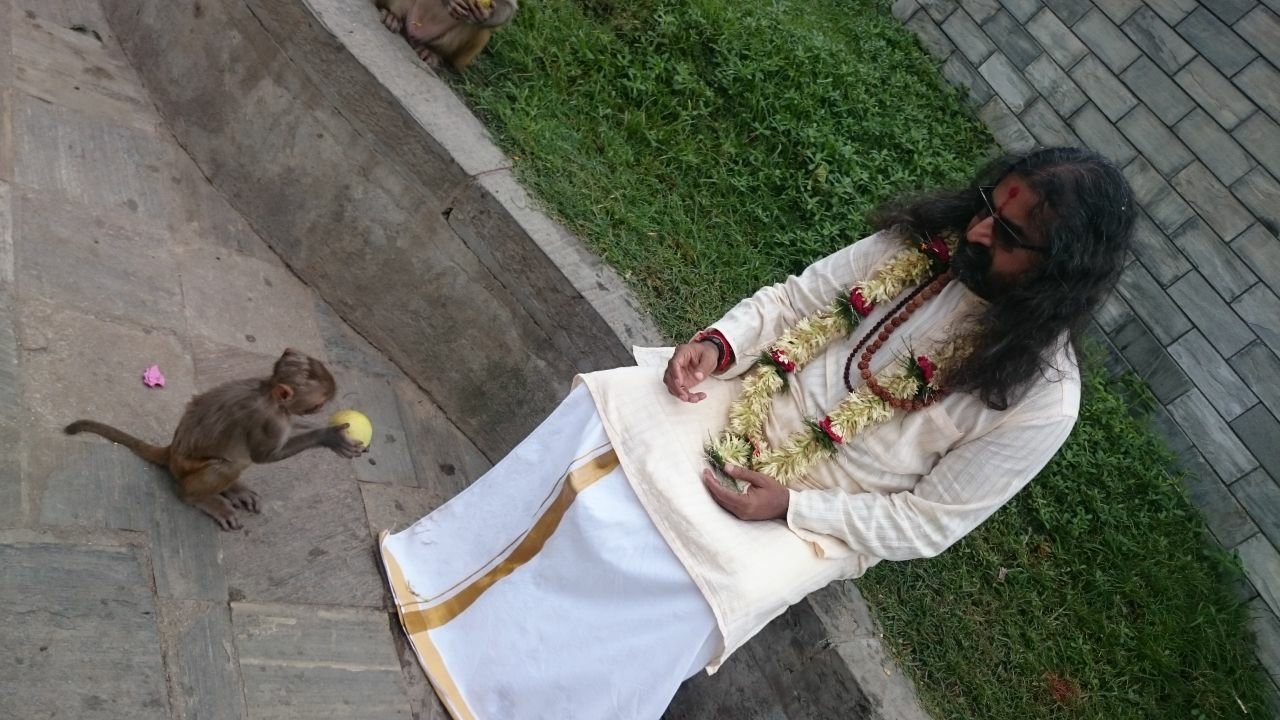
After bathing and performing the “Sandhya Vandan” (prayer/meditation ritual during sunrise and sunset), they walked to the village temple. Lord Krishna was the principle deity there, the sweet scent of basil (Tulsi) garlands that adorned the beautiful idol of Lord Krishna greeted them. The idol shone in the light of the ghee lamps.
Atmananda always had a clear reason for taking his followers to temples – purification. It was never for his sake. Purification has multiple aspects. First the senses, then the mind. Senses have no meaning or existence without the mind. Eyes capture the bright, shining, decorated positive glory of the idol, which is nothing but the representation of an ideal. Every idol in the Sanatana Dharma path is the representation of a particular ideal or dimension of our existence, such as action, will power, abundance, wealth, love, knowledge, peace, etc. Ears are awakened through mantras, bells, drums, conch and other sounds of the temple. Nose is awakened by the fragrance of basil leaves, flowers, incense sticks, camphor, and perfumes used on the idol. Skin is awakened by the application of sacred ash, turmeric paste, sandalwood or vermillion. Tongue is awakened by the sacred water, offered fruits or other offerings. Sound of conch which supposedly is as powerful as a thousand Om, powerful enough to ward off all negative elements and awaken the human nadis. Finally, the mind is awakened through all these senses as well as the vibrations of chants and songs, which detach the mind from the outside world and keep it steady in the present. Thus, the whole body is awakened. This helps inner and outer purification. Apart from that, the offering the devotees give at the temple signifies sacrifice and surrender. Humility is the most important aspect of human existence that brings forth grace in abundance.
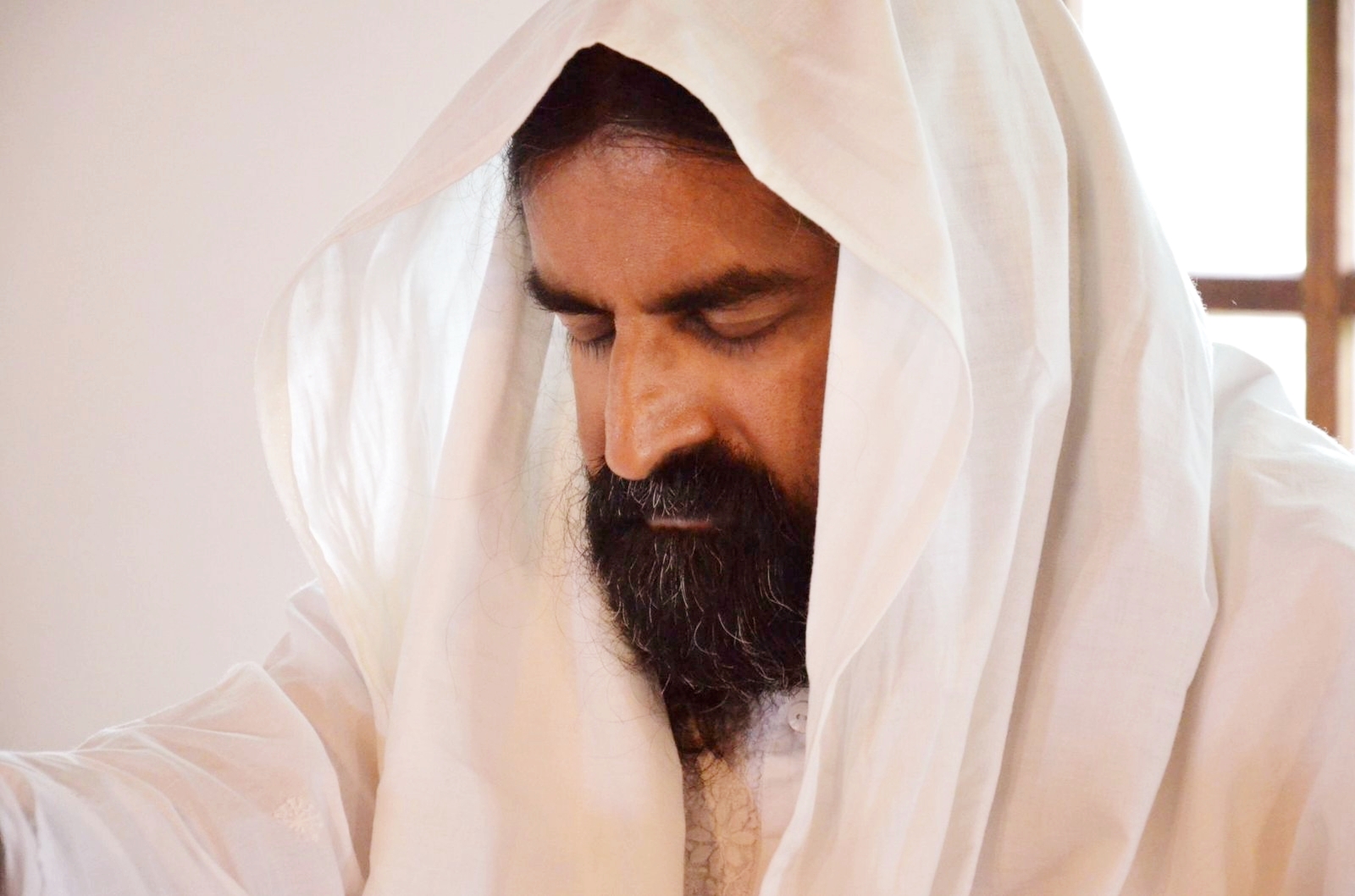
Humility has four aspects. The feeling of insignificance in a positive way is one aspect. If one feels lower than the lowest, it’s a clear sign of established humility. This is also why people prostrate with full body at the feet of the idol or spiritual master. Total surrender, making oneself insignificant, so that ego is brought down to the lowest possible level. Man minus ego is equal to God. Second aspect is being tolerant, nurturing high level of acceptance, without judgement of oneself and the world around us. Acceptance of oneself and the world around keeps our mind steady and calm. Resistance, judgement, prejudices, hatred and anger towards everything is the opposite of this. In that case, mind remains turbulent. Third aspect is acceptance and respect of all beings, human and non-human. Respect them as you would like to be respected or more. Fourth is no expectation. Do not expect respect, acknowledgement or anything at all while giving forth our best. This is symbolized by offering variety of stuff to the temple or idol. Idol represents an ideal and each deity is representation of different dimensions of human existence or different ideals. All these put together becomes the experience called Humility. Humility ensures grace in life.
And of course, temples are meeting places for sharing and caring as well as nurturing and expressing our innate goodness and kindness. Rejuvenation, purification and nurturing goodness are the reasons why Atmananda took people to the temples. He never encouraged prayers of requests for material and even spiritual benefits from the deities. He used to say, “Increase your inner space – you will carry more grace.” Whenever people asked Atmananda “What can we do to get the state of God?”, Atmananda always answered “By doing you only get more karma. Only though non-doing or detached existence from actions and the results of action, while in action, you can realize God. You cannot “get” God. God can only be realized. God is always there. Godhood has to be earned through emptiness. In silence, you become aware of it. Actions and expressions often take that opportunity away.
There were hardly any devotees in the temple that day. It was a village temple and away from the city crowd. An old woman and her teenage granddaughter walked around the temple in circumambulation chanting “Aum Namo Bhagawate Vaasudevaaya,” the sacred mantra of Lord Vishnu. When he saw Atmananda and his entourage, the priest had came out of the temple and handed out some flowers, sandal paste and two bananas which were offered to Lord Krishna earlier by some devotee. The priest said “Don’t go. Let me complete the rituals and close the temple. I would like to share some more food with you.” He went into the temple to complete the evening poojas (rituals). Atmananda gave one banana to the old woman with the girl, who came near him to touch his feet. He did not allow her to touch his feet. Instead, he touched the ground near her feet. She howled, “Oh no Swamiji, your touching my feet will bring me a big sin!” Atmananda smiled and said, “If I am the cause of your sin, I shall take it away too. Bless this son, mother. I am touching my mother’s feet.” This episode ended there because Atmananda is a man of few words and almost no emotions. He lived the life of a perfect Avadhoota.
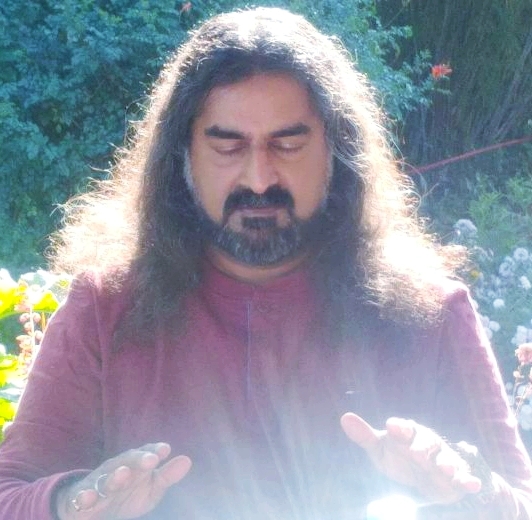
Atmananda and his group of 9 at that time sat outside the temple expecting the priest to close the temple and join them. The priest lived about 100 feet from the temple. He usually carried the rice and fruits that devotees offered to Lord to his house after every daily ritual. With that his family of five people survived. They never complained of poverty nor worried about their sorrows. He came to Atmananda, brought some broad leaves from a tree which served as disposable plates, spread them on a flat stone seat near a banyan tree, and with his hand, started serving rice. He served almost half of what he had got on the leaves. The rest he kept for his family. From a smaller vessel, using a spoon created out of a leaf folded in a particular manner and pinned together with a twig of a plant, he poured some ghee on the rice. Atmananda was sitting quiet watching this. The priest looked at Atmananda apologetically and said, “This is all I have. Please accept my humble offering and bless me.” Atmananda held the hand of the priest in gratitude, which still had remnants of the rice on it, and said “Great embodiment of unconditional love, your generations will not know what is hunger.” The priest’s eyes welled up. Atmananda said, “You have hungry mouths waiting for this food. You gave half of it to us. They may sleep hungry because the food you have is insufficient for five people. I will not allow that.” He took a plantain leaf and covered the vessel that the priest held in his hands, tapped the vessel thrice and told the priest “Do not open this leaf until it is time to serve. There will be sufficient food for all.” By then the priest was already overwhelmed. He tried to prostrate at Atmananda’s feet. He did not permit that. He held him and said, “You are taking good care of the beloved Lord Krishna without any demands and expectations. You are a pure and selfless man. You never care about you and your family while sharing food with any stranger who wanders this way. Your family is also good and pious. Only goodness and blessings will come to you. You may be materially poor. But you have a rich heart. You will never be short of anything from this moment. Your next seven generations will experience the goodness of your actions.” He sent the priest off with tears of gratitude in his eyes.
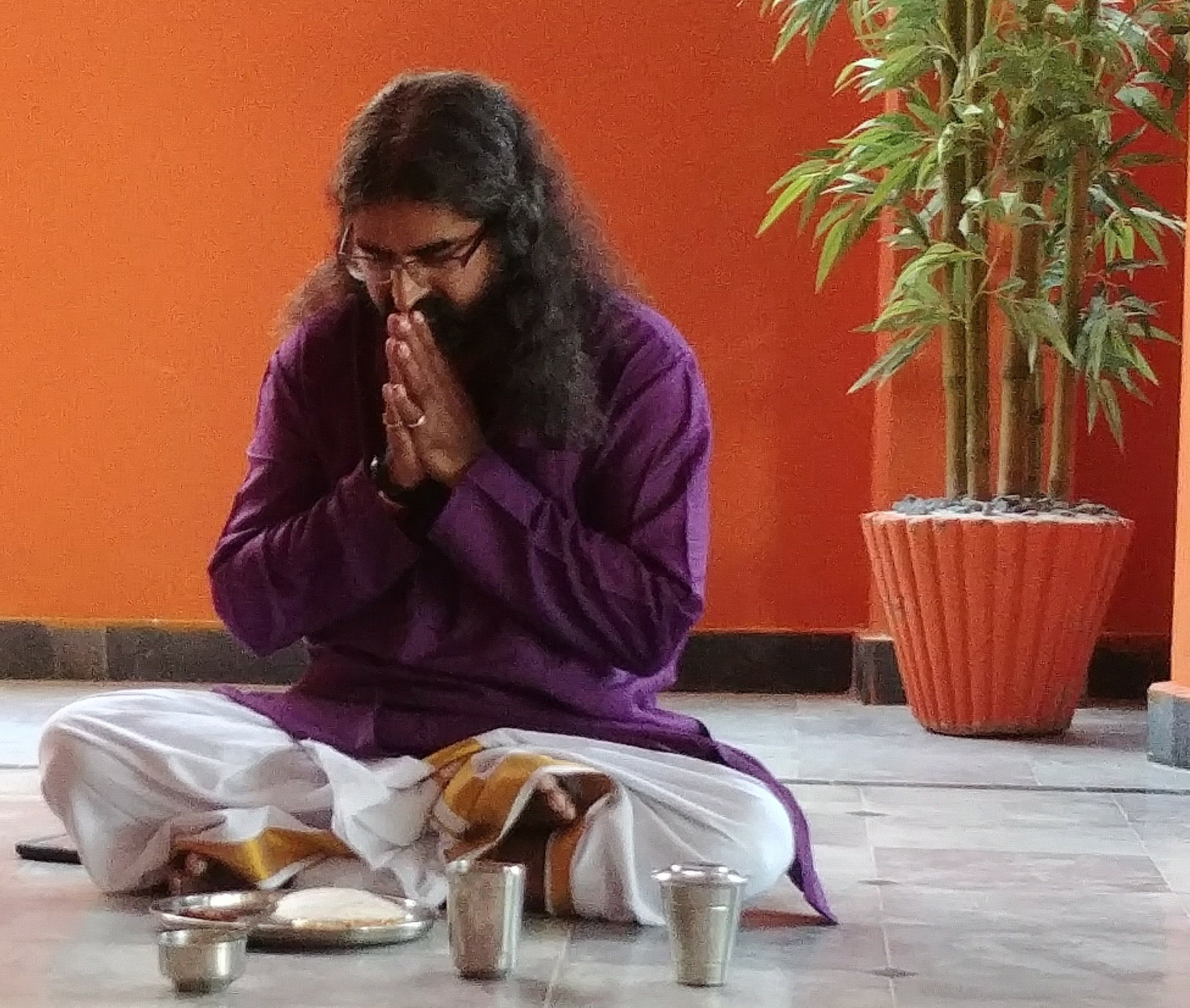
He closed his eyes, chanted some mantra and touched the food left on the leaf plate by the priest. Nobody knows how that little food became sufficient food. Everybody ate rice with ghee to their hearts full and nobody realized the original quantity was not even sufficient for one person, let alone nine. Same thing happened at the house of the priest. Everybody ate sufficient food and still there was more. {And the vessel that Atmananda touched stayed with that family for five generations. Their house never had any dearth of food.} All assembled were amazed how the most unassuming Atmananda performed an act of miracle. While they witnessed it, they did not think of it as a miracle because of their terrible hunger. Later, it hit them and all of them realized that they really did not know Atmananda, nor how he operates at any time.
They left the temple premises the same evening and settled in a school veranda about an hour away from the temple. Atmananda always walked at least an hour after the evening meal even though there was no dearth of walking ever because they were walking almost the whole day, every single day. Before the break of dawn, Atmananda set out to take bath and do the morning rituals. This school was away from the river bank. So, they took bath by drawing water from the well. Atmananda did his rituals a few yards away from the well, sitting on a stone. When the neighboring village women started to come towards the well to draw water, Atmananda got up and started to walk away. His team of nine followed him.
It was still dark. They walked for an hour in dark. There was a root of a huge tree on the walk way which was not so clearly visible. Atmananda who was walking ahead of everybody, tripped on it, fell and had a bad injury on his right leg. He could not get up or walk. His followers lifted him up and carried him to the clear space, to a flat stone on which various travelers used to rest when they were tired. This stone was near to the village path way. He was bleeding. They did not know what to do. Atmananda asked them to get some leaves of a very common wild plant. They brought the leaves. Atmananda crushed those leaves and fixed the paste thus made on his injury. There was no cloth to tie it. He removed his own towel, which was his only cloth except his loin cloth, and tied it over the crushed leaves.
Because of the excruciating pain Atmananda could not walk. His followers offered to carry him, which he refused. He sat on that stone from morning till evening. Atmananda and his followers had no food. They managed to get some water from a neighboring well. There were no houses in the neighborhood and the path had only a few travelers. If they walk a few miles backwards, they will reach the school and the village where they spent the previous night. Yet, Atmananda was stubborn. He never cared about hunger, but his followers were not so. Some of them expected Atmananda to do some magic and get them some food as he did before. Nothing happened. One by one the followers started protesting among themselves, standing away from Atmananda, started talking into receptive and sympathetic ears. They said “If Gurudev could materialize food for a priest, why can’t he do that again for us?” One of them said “My sight is blurred with hunger. I cannot even see a thing.” Another mused “Is the guru testing us?” The third said “Are you sure he materialized food the other day or did we imagine it?” One remarked “No way. He did. We all ate.” Another said “I am pretty much sure he has no such powers. It is probably the temple, Lord Krishna and the priest that made it possible. If he had such powers, he would not allow us to starve. Why can’t he do that now?” “If he has power to know our minds, he should be knowing that we are hungry. Why is he not doing anything about it?” Another person said “Is he sleeping, pretending sleep to fool us, or actually meditating? One of them said “He never asked us to follow him. He will never ask us to leave also. It is entirely up to us to stay or to leave.” Another one replied “What is his plan? Is he going to sit on this rock until he is healed which may take weeks?” That was a scary thought for everyone.
It was almost midnight. None of them had eaten anything. There was a village if they travel backwards. There was no clue about what lied in the way ahead. Some decided to go back towards the school. They took a few steps but the forest pathway was dark and scary. They feared snakes and nocturnal animals. They stopped and returned. Atmananda seemed to be sleeping unaware of all this. Manu and Ramakrishna sat on both sides of him focusing on their Guru seated in their heart center and they did not feel any hunger. The other seven people were in total confusion. Some of them tried to lie down and sleep, but the bizarre sounds of the jungle, piercing hunger and the fear of prowling animals were seriously affecting their sleep. Finally, it was a few hours to sunrise. Atmananda woke up. He asked Manu for two sticks. He used them as crutches and walked forward. His hungry, confused, sleep-deprived followers reluctantly followed him. Atmananda was not wearing anything except a loin cloth because his towel became his bandage, covering his newly acquired wound.
Luckily, after they walked forward about an hour, they found a water well, made by the king for the comfort of the travelers. They drew water, washed themselves, drank from it, some washed their clothes while taking bath, while Atmananda cleared his wound, applied more leaves and tied them with the same cloth again. There was no food in the neighborhood. It was a long starvation. After doing his morning rituals, Atmananda started walking. As always, he never told anyone where he was going and how long he will walk. He just started walking. Seven of his followers had only one thought in their minds – FOOD. Sunrise brought out colorful birds from their nests, flowers bloomed, and the forest pathway looked pretty and heavenly with various flowers and dew drops decorating them with sun rays. Only Manu and Ramakrishna could enjoy this. The others were looking for fruits, leaves, roots or even seeds that they could eat and quell their hunger. Atmananda walked on with his crutches. He never asked or cared how his followers felt. He never asked anyone to follow him in the first place. And he was an Avadhoota, very introverted and a perfect loner too.
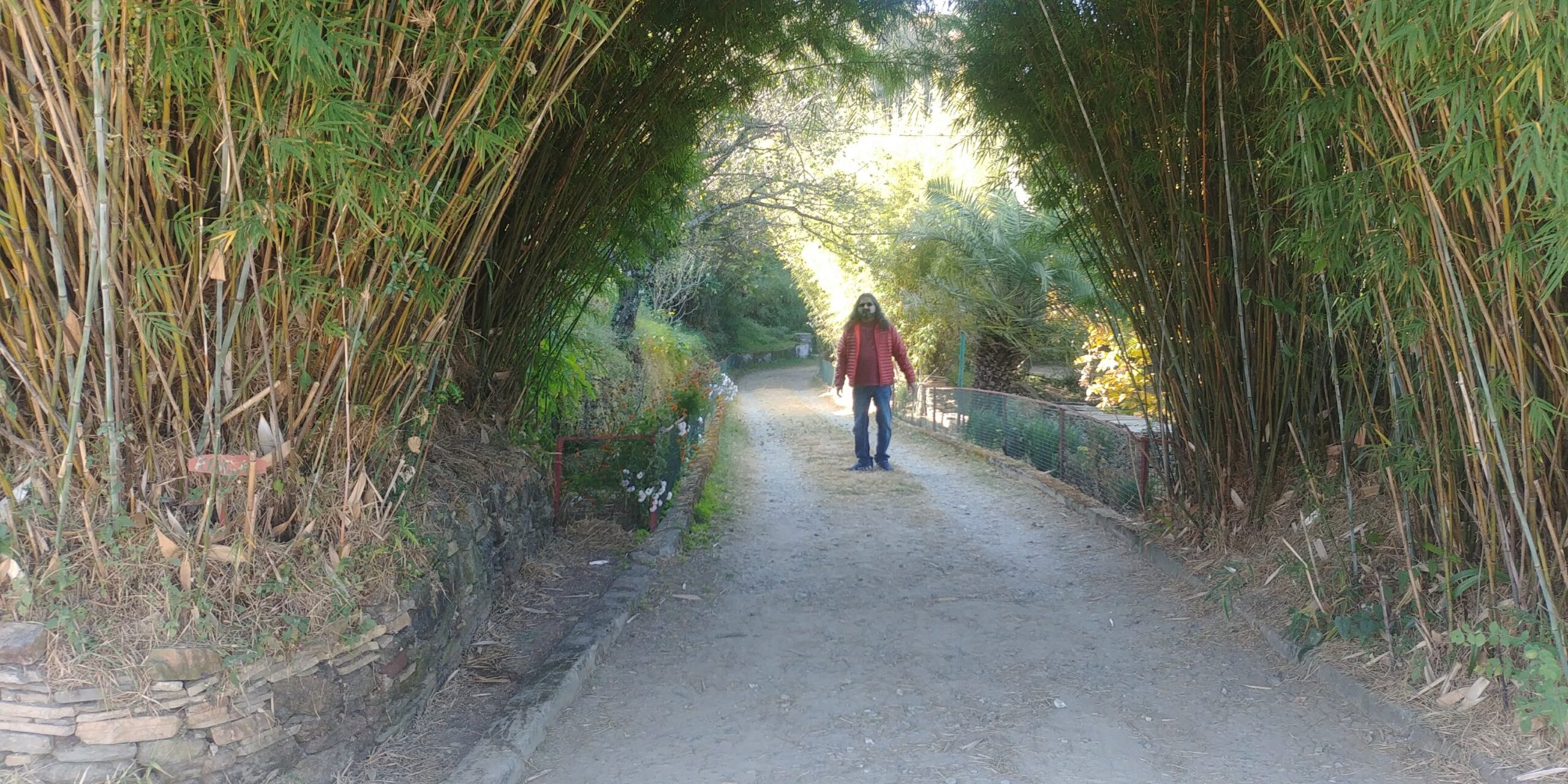
Finally, it was noon time. All the seven people were tired. By that time, they reached a stream coming down through the forest and flowing towards the river. They washed their tired feet and faces and drank a lot of water. Atmananda sat under a tree and closed his eyes. Manu and Ramakrishna sat next to him and connected to his heart centre and dissolved themselves into it. The seven confused followers moved away from them and started taking decisions. The leader of the group and perhaps the hungriest of them all named Amara said “I am leaving. I cannot see any end to this journey. I cannot sit like Manu with empty stomach. And I am convinced that Atmananda has no divine powers. He is an ordinary wandering monk.” Another one said “I agree. He has no spiritual powers. At the temple, I am sure, it was Lord Krishna who performed that seeming miracle.” Third one said “I too cannot exist this way. He is not concerned about us. He is too much into himself. And, after all, what exactly did we learn from him so far?” Fourth said “This is true. Why are we walking with him? It is always uncertainty and no training. He is teaching nothing. And he is confusing me to the level of frustration of all kinds. I am leaving.” Another one said “I am leaving too. This uncertainty is not worth it.” Amara said “Friends, he is an ordinary man. He fell and got himself injured. He cannot heal himself. He cannot feed himself or others. He is so helpless. Can’t you see? He is an ordinary man. We are deluded.”
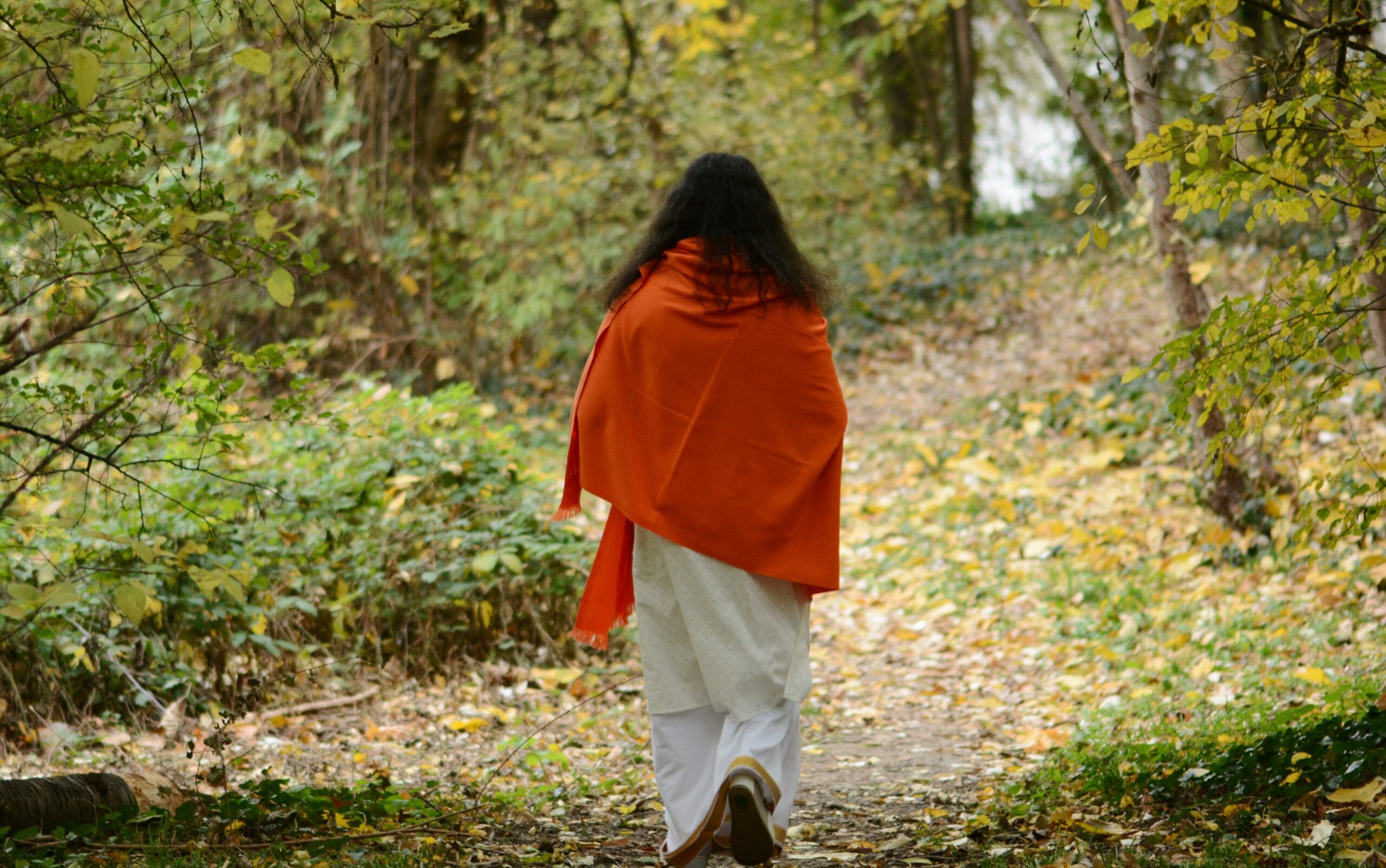
Finally, they all agreed that Atmananda is just an ordinary wandering monk with no extraordinary powers or knowledge and prepared themselves to leave him. They decided to go to him and bid good bye. When they approached him, they saw the three of them sitting with their eyes closed in meditation. They did not have the patience to wait until they opened their eyes. They just walked away. About half an hour after they left Atmananda, they saw a tree with some delicious fruits. They ate as much as they could and packed a few for the rest of their journey. After eating and resting for a while, Amara said “See, Atmananda does not even have luck on his side. Only after we left him, we found food. We starved the whole day and even night, looking at him and hoping that he will move. We made the right decision. We are free now and luck has favored us in the form of food.” Everyone agreed. Atmananda, Manu and Ramakrishna came back to terrestrial reality soon after the group left them. Atmananda tried to get up. Manu held his hand and helped him. Atmananda got his sticks and started walking. Ramakrishna said “Gurudeva, I shall fetch the others. They might be sleeping somewhere around. Please kindly wait for a while.” Without looking, Atmananda said without any emotion or concern, “They have left us. Let us move on.”
After walking for hardly 10 minutes, they found a small farmer residence. When they came close to it, the farmer’s wife, a young lady, came out of the house, invited them and asked them to be seated. She offered them water and freshly cooked food. They all ate well. Atmananda blessed her “Anna daata Sukhi Bhava” (May the one who served food always be happy and be in abundance). She became happy. She told Atmananda that she is pregnant and sought his blessings for a good and healthy child who will make their lineage proud. Atmananda blessed her “Tathasthu” (So be it). Even though she requested them to stay back and have the evening meal and stay the night over accepting their limited facilities, Atmananda politely refused that offer and decided to walk on. The farmer’s wife also offered some plant medicine for his wound. He politely refused that also. They started walking. The lady was at the gate with hands in position of deep reverence for Atmananda.
Before the road turned, Manu looked back to say a final goodbye to the woman. When he looked back to see if the lady was still there, he did not see the lady, the house or cattle. There was no trace of any habitats. It was only thick forest which blocked even the rays of sun. He could only see the village path behind him, as far as his eyes could go. As usual, Atmananda never looked back. He kept walking. And both Ramakrishna and Manu noticed that Atmananda was walking without sticks and there was no trace of an injury on his leg! They wondered the reason for this divine drama and concluded that it was to shake the tree and shed the dry leaves, dry of spiritual conviction. Atmananda always said “Conviction is essential when one chooses to walk the path of liberation. Perhaps conviction is more essential than faith. Passion and fearlessness are just by-products of it.
One leaf from the life of Atmananda ends… here.
Disclaimer:
Atmananda is a fictional character created by Mohanji to explain the Tradition. Any resemblance to the living or dead is purely coincidental.

